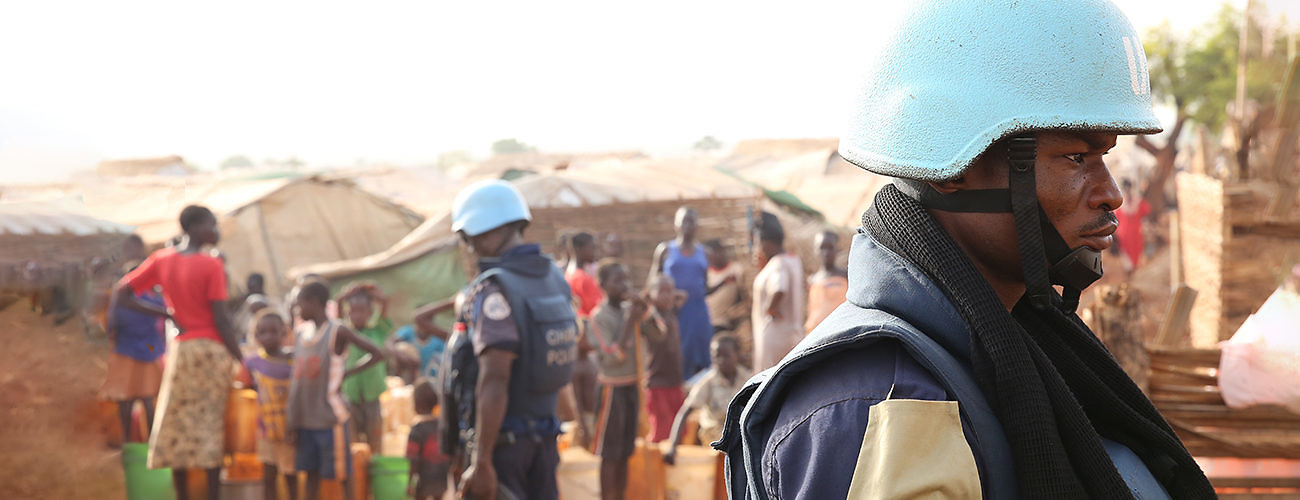UN peacekeepers accompany the director of the human rights division of the UN Mission in South Sudan on a human rights assessment in Wau, April 19, 2017. Nektarios Markogiannis/UNMISS.
The effectiveness of UN peace operations depends on the “operational readiness” of their personnel, which refers to the knowledge, expertise, training, equipment, and mindset needed to carry out mandated tasks. While the need to improve the operational readiness of peacekeepers has been increasingly recognized over the past few years, the concept of “human rights readiness”—the extent to which consideration of human rights is integrated into the generation, operational configuration, and evaluation of uniformed personnel—has received less attention.
This policy paper analyzes opportunities and gaps in human rights readiness and explores ways to improve the human rights readiness of peacekeepers. A comprehensive human rights readiness framework would include mechanisms to integrate human rights considerations into the operational configuration and modus operandi of uniformed personnel before, during, and after their deployment. This paper starts the process of developing this framework by focusing on the steps required to prepare and deploy uniformed personnel.
The paper concludes with concrete recommendations for how troop- and police-contributing countries can prioritize human rights in the force generation process and strengthen human rights training for uniformed peacekeepers. These actions would prepare units to uphold human rights standards and better integrate human rights considerations into their work while ensuring that they deliver on this commitment. Ultimately, improved human rights readiness is a key determinant of the performance of UN peacekeepers, as well as of the UN’s credibility and reputation.








